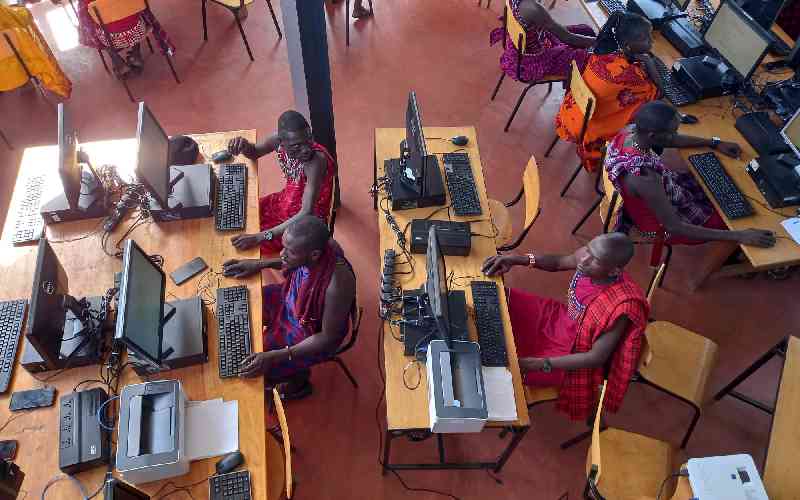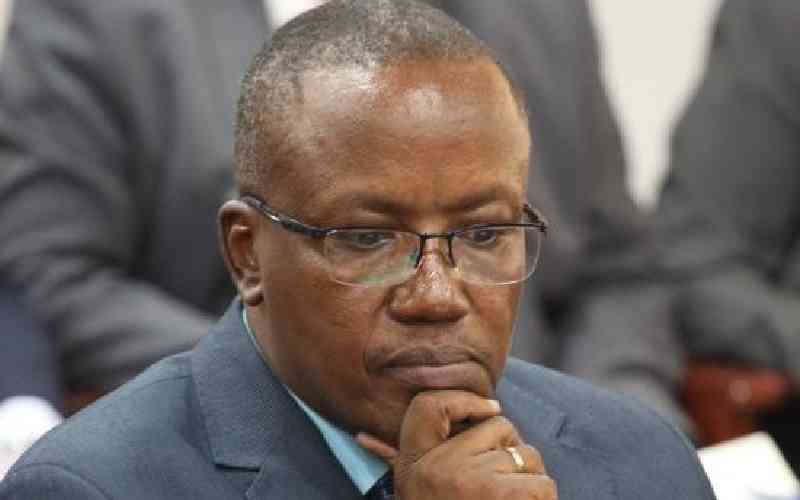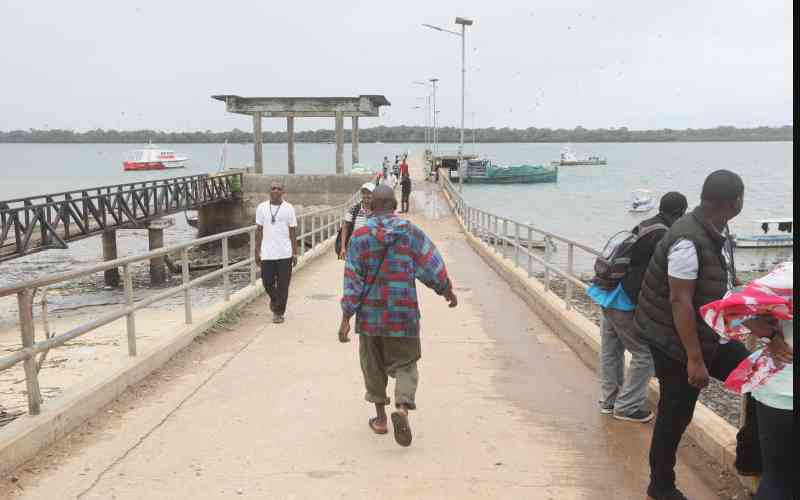By Mark Kapchanga
The Government is being blamed for playing delaying tactics on an otherwise volatile issue on the controversial 30, 000-acre piece of land in Mau Narok.
According to area politicians flanked by leading businessman and local leader Daniel Ole Kiptunen, the State must hasten the judicial process to ensure that the lawful owners of the land, now owned by the country’s prominent personalities, are resettled.
It is alleged that several families were evicted from the controversial farm by powerful individuals in Kenyatta administration.
On Thursday, thousands of people from the area attended a court-hearing session that was to determine the fate of the piece of land.
The hearing of the case was, however, pushed to March 9 after two of the three judges appointed by the Chief Justice Evan Gicheru to hear it were said to be on leave.
"The States seems to be scared by this move. It is ironic that the two judges are on leave despite the fact that the office of the Chief Justice had set December 2 as the date of the hearing of the matter," Mr Ole Kiptunen said.
The case mentions the first respondent as the Attorney General of the Republic of Kenya and has been sued in his capacity as the legal adviser to the Kenyan Government while the second respondents are the Registered Settlement Fund Trustees.
Kenya declared a protectorate
According to the petitioners, led by Professor Meitamei Olol Dapash, when Kenya was declared a protectorate in 1897, through the East African Order in Council, the British Imperial Government extended to the protectorate the 1894 Indian land Acquisition Act, which was then used to compulsorily" acquire land for the Railway line and for the ten mile zone each side of the line for Government buildings and other public places.
Mr Ole Kiptunen says the delay strategies will not defeat the will of the people, whose time has come.
"This will set a precedence to other communities who were unfairly displaced from their rightful pieces of land. We are determined to have our land back," he said.
But the leading businessman says the quest will be done peacefully. "We are even ready to buy the piece of land at market rates," he added.
Leading lawyer Thomas Letangule, who represents the aggrieved party, blames the successive Governments for their failure to redress the petitioners "for the alienation of their lands" which has denied them an equal opportunity for development as other Kenyan communities.
Mr Letangule, credited for having successfully argued a number of land cases against prominent personalities, is optimistic the Maasai community will justly get back their land under Article 10 of the UNDRIP, a UN declaration which seeks to address the rights of indigeneous people.
Stay informed. Subscribe to our newsletter
"The declaration says indigenous people shall not be forcibly removed from their lands or territories. No relocation shall take place without free, prior and informed consent of the indigenous peoples concerned and after agreement on just and fair compensation and where possible, with the option of return," Mr Letangule said.
The petitioners say that their ancestral native title was never extinguished by the acquisition of the piece of land by the British colonial settlers.
"Their native title to those lands subsists to date and it ought to be enforced and the petitioners and the Maasai community be granted possession of those lands," Prof Dapash said.
The move comes days after it was alleged that the current owners of the pieces of land will give way for the settlement of the internally displaced persons.
On Friday, the Government stated that it would take action against politicians inciting people to invade the piece of land, meant to resettle IDPs.
Narok DC Geoffrey Kigochi said he was aware that there are people who are against the resettlement.
 The Standard Group Plc is a
multi-media organization with investments in media platforms spanning newspaper
print operations, television, radio broadcasting, digital and online services. The
Standard Group is recognized as a leading multi-media house in Kenya with a key
influence in matters of national and international interest.
The Standard Group Plc is a
multi-media organization with investments in media platforms spanning newspaper
print operations, television, radio broadcasting, digital and online services. The
Standard Group is recognized as a leading multi-media house in Kenya with a key
influence in matters of national and international interest.
 The Standard Group Plc is a
multi-media organization with investments in media platforms spanning newspaper
print operations, television, radio broadcasting, digital and online services. The
Standard Group is recognized as a leading multi-media house in Kenya with a key
influence in matters of national and international interest.
The Standard Group Plc is a
multi-media organization with investments in media platforms spanning newspaper
print operations, television, radio broadcasting, digital and online services. The
Standard Group is recognized as a leading multi-media house in Kenya with a key
influence in matters of national and international interest.









